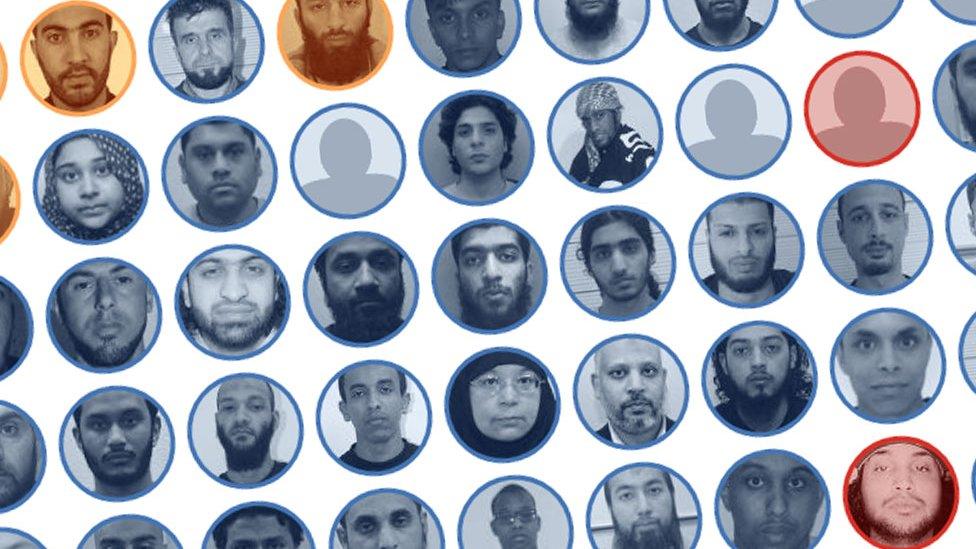The Syria suspect and the funeral
- Published
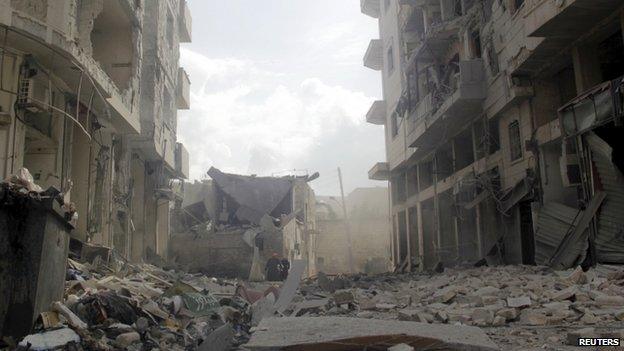
Warzone: Would AZ try to join it?
If you want an example of how much energy security officials are putting into the question of possible threats from Syria, have a look at the case of a man known by the cypher "AZ".
I can't tell you his real name because he is accused of links to extremism that have not been put before a criminal court. That means his identity must be protected unless a court says otherwise.
I can tell you that he is Syrian, living legally in the UK. I can tell you that he cannot go back to the Middle East to bury his father, who died of cancer last month.
And that's because the home secretary and her officials are concerned he is a potential jihadist.
The story of AZ came to light because of a highly unusual hearing on Wednesday at the High Court in London. That hearing provided a rare glimpse into how ministers are quietly using executive powers to restrict the movements of people they suspect are extremists.
I say "quietly" because when I asked the Home Office what they could tell me about the case, nothing came back.
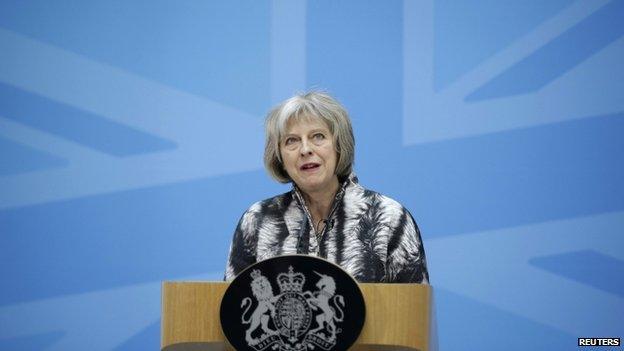
Home Secretary Theresa May is concerned AZ is a potential jihadist
The High Court, however, hears challenges against how ministers use their powers in open court. If there is detail that relates to national security, then there can be a closed hearing to prevent the disclosure of information that would compromise the work of our secret intelligence and security agencies. Part of AZ's hearing was in closed session.
Death in Sweden
So to the man himself. AZ is settled in the UK as a Syrian refugee.
He says members of his family were killed by the regime of President Bashar al-Assad. He describes himself as an opponent of Assad, but also Islamic State and other jihadists groups now fighting it out over Syria and Iraq.
Since settling in the UK, he has been subject to no legal restrictions in his new home. An immigration tribunal recently gave permission for his mother, brother and wife to join him.
Last month, AZ's father died in Sweden, where he had separately sought refugee status, after a split in the family.
AZ now wants to collect the body and take it for burial in Jordan, which borders Syria, where his mother and brother are living. But he can't.
Travel papers
The one legal restriction AZ faces is on his movement outside of the UK. The home secretary has previously denied him travel papers and her officials have told him that's because he is suspected of being an Islamist extremist who would fight in Syria, if he could reach the country.
Allowing him to leave the UK would increase the risk to British national security, he was told.
The detailed intelligence assessment behind that decision has not been made public or disclosed to AZ.
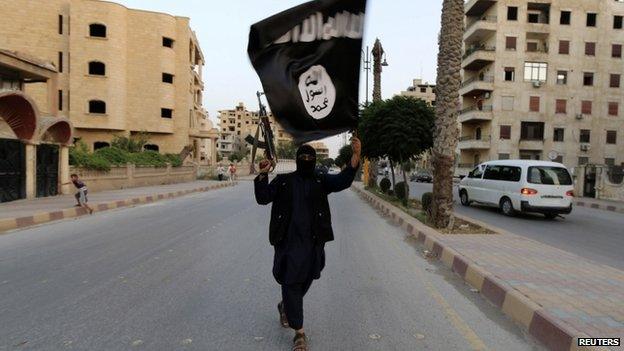
Hundreds of Britons are already thought to have joined extremists in Syria and Iraq
Now, the Syrian has been locked for months in a legal battle over the general principle of whether he should be allowed at all to travel.
But in March this year he sought urgent and exceptional permission to visit Sweden, telling the Home Office that his father was dying of cancer.
On 8 May, the Home Secretary granted him a restricted permit to fly to Sweden. AZ's father died the same day, before he could reach his bedside.
In Wednesday's unusual public hearing, lawyers for AZ argued that the Home Secretary should now be ordered to allow AZ to organise and attend a funeral in Jordan because continuing the travel restrictions amounted to a breach of his right to family life.
Application rejected
The High Court heard that AZ, as the eldest son, had religious and cultural duties to fulfil towards his late father, obligations that had increased because he had not been at his father's side in his final moments.
Mr Justice Cranston ruled that he must turn down that urgent application. The judge said he could not force the home secretary's hand because her security case outweighed the factors in AZ's favour.
The court had also heard that ministers hadn't yet reached a final decision over allowing AZ to reach Jordan and they were treating it as a priority.
So for now, AZ's late father lies in a Swedish morgue.
Islamic rites typically require burial as soon as possible after death.
It is not clear whether the funeral will now happen without the son being present.

Tracking Britain's jihadists
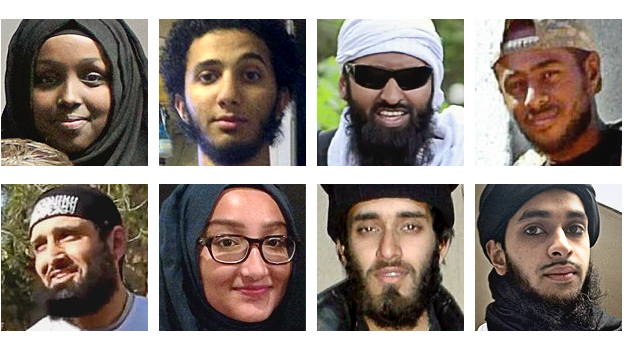
It includes the stories of:
The fighters who have died
The Britons who have returned and been convicted by the courts
Many others we have established to be alive and active in Syria or Iraq

- Published12 October 2017
